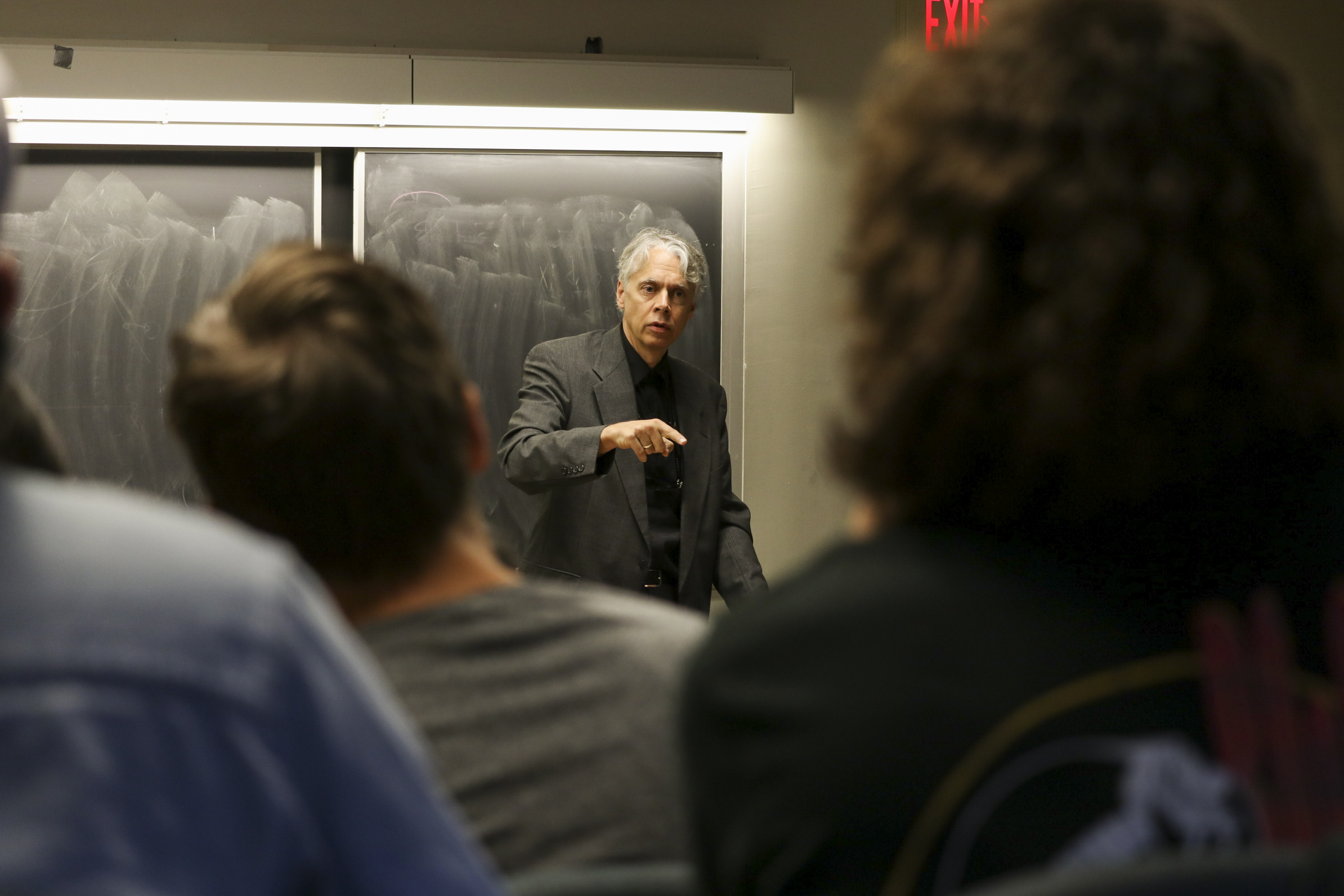
c/o William Halliday, Photo Editor
Last Thursday, as part of the University’s Public Affairs Center (PAC) speaker series, Mark Bauerlein, a professor of English at Emory University, touched on his support for Donald Trump, social media, and conformity in his lecture titled “Political Correctness On Campus and Off: The Burden of Nonconformity.”
Bauerlein is senior editor of “First Things” magazine and author of “The Dumbest Generation: How the Digital Age Stupefies Young Americans and Jeopardizes Our Future.”
Beginning with a discussion of the 2016 election, Bauerlein noted he was disturbed by reporters’ and political elites’ responses to Donald Trump. In his view, “elites” failed to intellectually engage with Donald Trump’s ideas and instead focused on his qualifications and status.
“Deeper social, psychological elements were coming into play that were about the normal and the abnormal, the figure who belongs and the outcasts,” he argued. “I don’t remember any figure in American life so opposed by so many different powerful segments in American society except maybe George Wallace.”
Bauerlein then expanded his critique to condemnations of controversial speech. He derided the backlash faced by University of Pennsylvania Law School Professor Amy Wax after an op-ed written by her and University of San Diego Professor of Law Larry Alexander in the Philadelphia Inquirer calling for a return to the bourgeois culture of the 1950s. Critics viewed the article as racist, including 33 colleagues of the professor who signed a joint letter condemning Wax. He pointed to this an example of not engaging with speech and instead only censuring Wax.
Bauerlein then criticized “the hyper-socialized lives of young people” as part of an emergence of group mentality in contemporary American society. He invoked Transcendentalists such as Ralph Waldo Emerson, Henry David Thoreau, and Walt Whitman as keys to preventing devolution toward the dangers of group psychology.
Following the lecture, he opened the floor to questions from students, staff, and community members.
“They’re all old white dudes,” noted one student.
Bauerlein implored young people to schedule a period of solitude into their day as a potential solution.
“The bigger goal is here, through these exercises in solitude, you come back to a social public event such as the advent of Donald Trump, and you do more than react along with everyone else,” Bauerlein said. “You despise him on your own grounds, not the grounds on what ‘the people’ think.”
Jack Minton ’18 asked Bauerlein about how he can criticize the millennial generation for its social media and aversion to reading when Donald Trump symbolizes immediate gratification in media, is one of the least well-read presidents, and proposed eliminating funding for The National Endowment for the Arts. Beatrix O’Gorman ’19 joined in criticizing inconsistencies between Bauerlein’s positions and Trump’s.
“I would put this down to a political calculation,” Bauerlein responded. “My opinion was if Hillary was president, my church was going to have to hire a lot of lawyers. If you ask social conservatives what it has been like for the last 40 years, they would say ‘It’s been horrible, we’ve been despised,’ and that included the Republican Party.’”
Two audience members inquired about Trump exploiting group psychology himself through statements attacking women and people of color.
“I disagree in characterizing Trump as a reactionary,” Bauerlein said.
Other questions pertained to whether Trump’s positions could be labeled nonconformity considering his many steadfast supporters.
“As soon as you see a group amassing around something you subscribe to, it’s time to rethink,” Bauerlein responded. “We see more mob activity now than since the Vietnam War, and that’s something in need of explanation.”
Mason Mandell can be reached at mjmandell@wesleyan.edu.